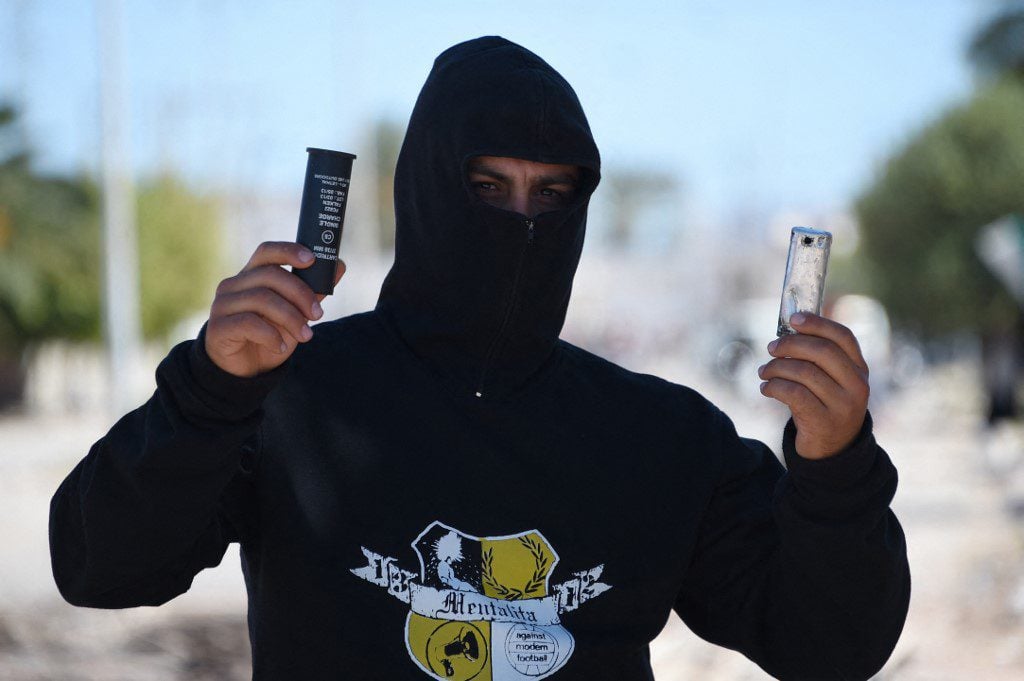
Hakim Marzouki
The phenomenon of the involvement of many Tunisian youths in armed Islamist organizations continues to preoccupy political, social, and psychological analysts.
Those analysts wonder about the reasons behind the attraction of Tunisians – more than others – to these terrorist groups to assume leadership positions on the field and theoretical levels, even though the country they came from is not known for religious extremism. On the contrary, their country is closer to the modern secular systems in terms of social life and the manifestations of contemporary life in clothing and food. In this context, we must refer to the educational and judicial systems and the active cultural life known for its splendour and the abundance of active and influential names in the Arab and Islamic worlds.
Where did these people come from, and how did they fall into the arms of extremism? Nothing in the countries of their nationality indicates any manifestation of extravagant religiosity. Luxurious tourist facilities spread across the country from north to south. Cities are full of bars to a degree you cannot find in some European countries, in addition to a daily life that follows the rhythm of modern times thanks to what the independence leader Habib Bourguiba established. Bourguiba imposed the best laws regulating personal status. The list includes equality with women and the prevention of polygamy. That Tunisian context is unique and is not available in other Arab and Islamic countries. Therefore, it is reasonable to ask: Where did this calamity come out? How did this setback occur in a society that scholars said is the closest to joining the ranks of the advanced nations?
Part of the answer may lie in the manifestations of modernity and the distance from extremism. That is, modern life that characterizes Tunisian society compared to its Arab surroundings was the cause of the infiltration of the takfiri creed and the emergence of extremism as an unconscious reaction to a sort of cultural alienation.
Poverty was a strong motive towards searching for metaphysical and utopian solutions fuelled by extremist takfiri forces. These forces invest in claiming that deteriorating economic conditions originate from abandoning Islam as a state. For these forces, Islam is the “solution” to all crises.
The inability of Tunisians to follow fashion and all the manifestations of the consumer age makes them hide behind a religious dress such as the niqab for young women and the Islamic outfit for young men.
This kind of uniform makes the two of them break from keeping pace with fashion, in addition to the austere life they see from the core of the Islamic faith.
People taking up arms and fighting with Islamic groups believe that the promised paradise awaits them in another world. According to them, they would enjoy a more just after-life than the one they live.
This alienation experienced by the marginalized youth in Tunisia has generated resentment and found it in extremism and murder. However, one would say, why are Tunisian youth does that out of the rest of the young people in Arab countries?
The answer is almost the same. The Tunisian extremism is due to false awareness that generates idiotic courage among some estranged young people who live in appearance and form like the Europeans. However, the truth is young people live in misery and deprivation, which makes them find torn between two cultures.
Many scholars and analysts are not aware of a vital historical context of this phenomenon. During the 1970s and 1980s, extremism prevailed in the Tunisian communist and leftist organizations. At that time, a large number of Tunisian youth fighters were in those organizations. Therefore, it is crucial to know that this unconscious revolutionary rage, with its disastrous consequences, may well be a Tunisian case par excellence.
DISCLAIMER
The opinions expressed in this publication are those of our bloggers. They do not purport to reflect the opinions or views of Fanack or its Board of Editors.


